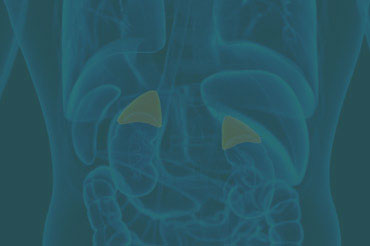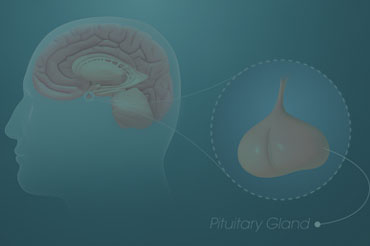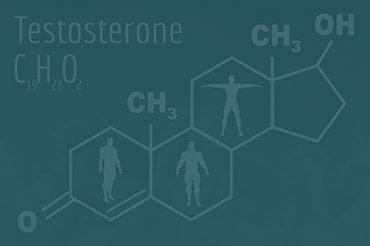
Compassionate and Comprehensive Endocrine Care

We have in-office and telemedicine Appointments available!

Advanced Endocrinology is an endocrinology clinic located in Schaumburg, Illinois. With a combined 25+ years of experience, our dedicated staff works with our patients to address chronic medical issues such as diabetes, thyroid issues, polycystic ovarian syndrome, and weight management. We strive to educate, encourage, and empower our patients to take control of managing their chronic medical issues. We take pride in individualizing care, listening to our patients concerns and utilizing current treatment options and technology to ease the burden of these conditions. It is our team’s mission to provide compassionate and comprehensive care to our patients.


Our approach to management is to individualize treatment to reflect an individual health goals. We try to minimize the work of managing diabetes by offering options of management including lifestyle changes with and without oral medications, insulin pens and insulin pumps. We also try to minimize the work of obtaining glucose values by using continuous glucose monitors. Read More

We manage an array of thyroid issues including overactive thyroid(hyperthyroidism), underactive thyroid(hypothyroidism) and thyroid nodules. We focus on properly diagnosing thyroid issues and offering treatment options. Many with thyroid issues note changes in their hair or their body weight. We focus on these issues both as part of the management of thyroid issues where appropriate and even as separate issues. We recognize that these symptoms can impact general wellness. Read More

Located above the kidneys, these glands make hormones that control blood pressure, sodium and water balance as well as weight and glucose management. These glands can produce an excess or a lack of these hormones and/or sometimes have growths called nodules. Read More

Osteoporosis is a condition that causes fragile bones and an increased risk of fractures though it typically does not cause symptoms until there is a fracture. Though osteoporosis is frequently thought of as a condition of postmenopausal women, it frequently affects men particularly as they age. Defining and addressing risk factors, discussing potential treatments(when appropriate) and reassessing bone density are crucial for proper management of this condition. Read More

A small gland located at the base of the brain. This "master gland" controls the production of many of the essential hormones in the body. Frequently, the pituitary is the location of noncancerous tumors. Read More

Diabetes diagnosed during pregnancy is called gestational diabetes and requires attention. With careful attention, support and guidance, achieving diabetic goals is possible. Read More

Though thyroid issues can overlap with some typical symptoms of pregnancy and various forms of thyroid issues can occur in pregnancy, evaluation and treatment to reach ideal levels of thyroid hormone is crucial. Read More

Hair loss can have significant impact on mood and self worth. From thyroid issues to vitamin deficiencies to more complex hormone related diagnoses, hair loss can result from several different conditions. Treatment can be oral or topical - dependent on the diagnosis and requires consideration of other health issues that may be ongoing. Read More

Both through lifestyle and when needed, medications, we partner with patients to prevent and treat the complications of obesity. If medications are needed- some may improve issues such as glucose management, headaches or depression. Read More

Polycystic ovarian syndrome, a condition that causes irregular cycles and an increased Testosterone level, can also increase the risk of development of diabetes. We treat this condition with many concerns in mind. For some, this relates to the possible symptoms of elevated Testosterone such as excess hair and acne and for others, we are interested to focus on their short-term goals of fertility- but for all patients, our mission is to prevent the potential metabolic complications of PCOS, including diabetes. Read More

High cholesterol can increase the risks of heart disease, peripheral vascular disease and the risk of stroke. Medications are not always necessary. However, if needed, decisions are made through discussion. Monitoring is done to ensure an adequate response to treatment. Read More

From vitamin deficiencies to sleep disorders to thyroid and Testosterone dysfunction and even rheumatologic conditions, fatigue can have many potential causes. It can have an impact on safety and certainly quality of life. Treatment is based on contributing factors and patient goals. Read More

In men, Testosterone deficiency can have varied consequences from fatigue, decreased muscle and bone mass to decreased libido and sexual function. Providing treatment can remarkably improve outcomes yet not all with this issue require treatment. Partnering with patients, we determine if this is most appropriate for each individual. Testosterone disorders in women can be related to menstrual, ovarian and complex adrenal disorders which can impact blood pressure and fertility. Proper diagnosis is needed to create a treatment plan. Read More
*If you do not see your diagnosis listed, please feel free to Contact Us.
*Subject to change
*Subject to change
Please allow 24-48 business hours for a response.
Copyright © 2025. All Rights Reserved.
Designed and Developed by WSI Optimized Web Solutions